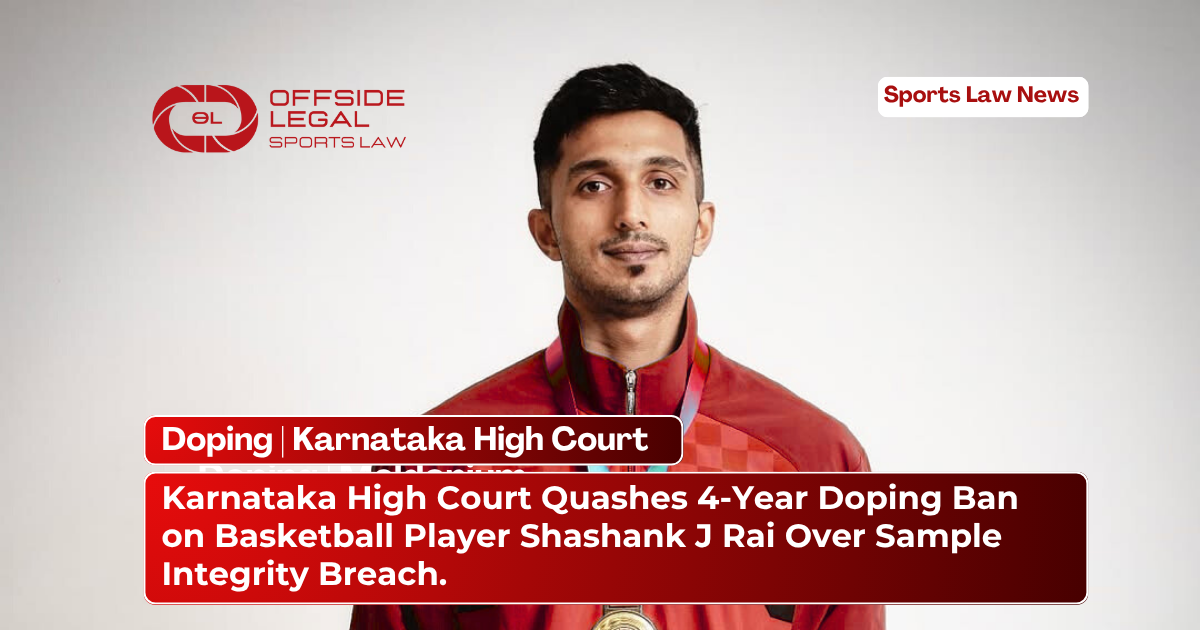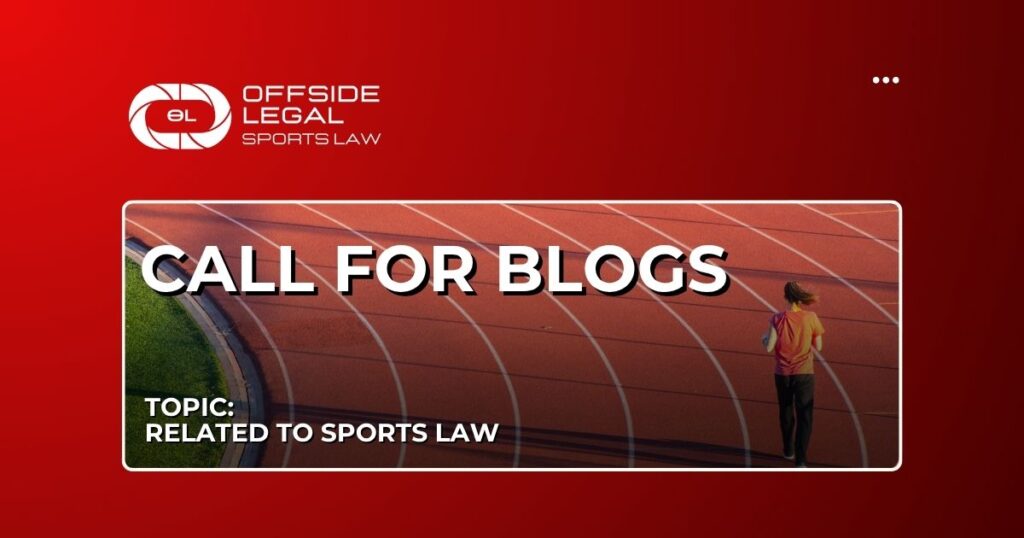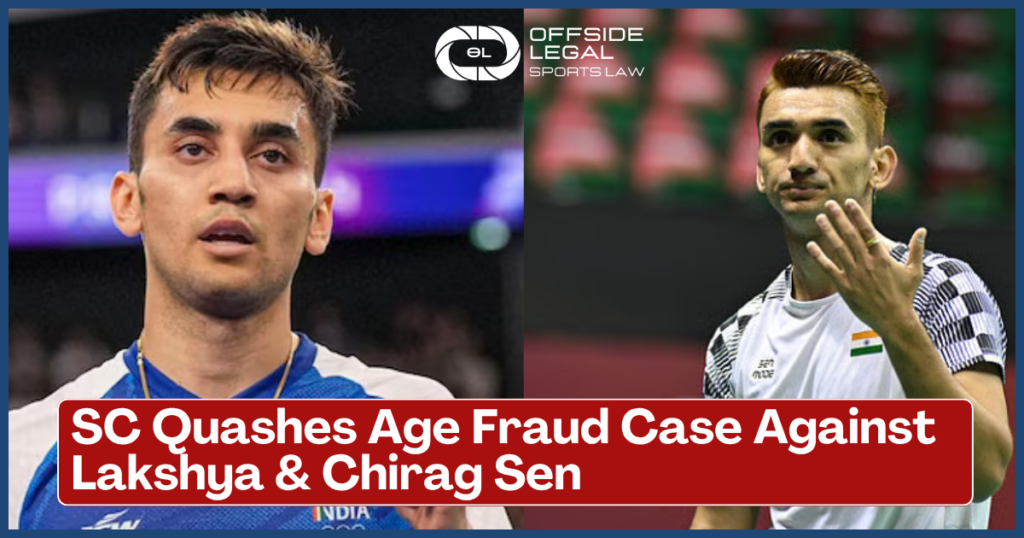Key Takeaways from Shashank J Rai Case:
- Court finds serious procedural lapses, including breach of sample integrity and lack of fair hearing under Section 22(8) of the National Anti-Doping Act, 2022.
- Player’s explanation linking 19-NA traces to pork consumption was supported by scientific evidence but not duly considered by authorities.
- Orders of ADDP and ADAP quashed in entirety; court refuses remand and restores eligibility citing irreparable harm already suffered.
What Hon’ble High Court Held:
In a significant ruling that reinforces the principles of due process and procedural rigor in anti-doping adjudication, the High Court of Karnataka has set aside the four-year ban imposed on Shashank J. Rai, a national-level basketball player and serving Deputy Range Forest Officer, on charges of alleged doping.
Justice M. Nagaprasanna, presiding over W.P. No. 4710 of 2024, quashed the orders of both the Anti-Doping Disciplinary Panel (ADDP) dated 11.10.2022 and the Anti-Doping Appeal Panel (ADAP) dated 16.04.2024, holding that the entire process suffered from “non-consideration of vital material, absence of reasoned adjudication and a palpable breach of the principles of fairness.”
The case concerned an Adverse Analytical Finding (AAF) reported in a urine sample collected from the petitioner on 05.02.2022, while he was practising, i.e., out-of-competition, under the random testing regime of the National Anti-Doping Agency (NADA). The test reportedly detected the presence of 19-Norandrosterone (19-NA), a metabolite associated with anabolic steroid use. Consequently, the petitioner was issued a notice of charge dated 13.07.2022, alleging violations under Articles 2.1 and 2.2 of the National Anti-Doping Rules, 2021.
Procedural Irregularities and Sample Integrity Concerns
The petitioner challenged the proceedings, contending that the integrity of the urine sample had been compromised. The sample, initially collected in Bengaluru, was sealed and then opened and resealed at the National Dope Testing Laboratory (NDTL) in Delhi. Subsequently, it was sent to the Federazione Medico Sportiva Italiana (FMSI) in Rome for further analysis to determine whether the presence of 19-NA was endogenous or exogenous.
The High Court took a serious view of this transnational movement of the sample, noting that Section 21 of the National Anti-Doping Act, 2022 and Article 6.4 of the WADA Code mandate verifiable, accurate, and well-documented sample handling protocols. The Court characterised the treatment of the petitioner’s sample as a “classic illustration of breach of sample integrity.”
Unconsidered Defence and Biochemical Explanation
In his defence, the petitioner submitted that the presence of 19-NA was likely due to his consumption of pork, particularly from non-castrated male pigs, which is known to result in low levels of 19-NA in urine. He supported his claim with scientific literature, dietary records, expert affidavits, and food bills.
The Court observed that the Disciplinary Panel and the Appellate Authority had both failed to apply their mind to the petitioner’s detailed explanation. It noted that the petitioner’s plea was “neither frivolous nor speculative” and yet no further investigation was initiated, nor was any reason provided for the outright rejection of his biochemical defence.
The Court criticised the authorities for not invoking Article 10.6 of the WADA Code, which permits discretion in cases involving no significant fault or negligence, and failing to accord a fair hearing as required under Section 22(8) of the Anti-Doping Act.
Also Read: Ekaterina Guliyev CAS appeal dismissed: 2012 Olympic Medal to be Stripped
Violation of Natural Justice and Procedural Mandates
While acknowledging the strict liability regime under anti-doping law, the Court cautioned that “strictness in liability does not mandate callousness in the process.” It reiterated that administrative efficiency cannot come at the cost of foundational principles of natural justice.
The Court also noted that critical details, such as the exact concentration of the prohibited substance, were not disclosed in the notice of charge or in the original debarment order, and were only revealed at the appellate stage—further violating the petitioner’s right to a fair defence.
Access the Judgement here.
Court Declines to Remand, Quashes Ban
Taking note of the fact that the petitioner had already served three years of the four-year suspension, and had suffered public ignominy and irreparable professional harm, the Court declined to remand the matter for fresh adjudication. Instead, it exercised its writ jurisdiction to quash the orders in their entirety, thereby restoring the petitioner’s eligibility to participate in competitive sport.
“The petitioner, a national sportsman and a civil servant in uniform, has now suffered the ignominy of public censure… To give a quietus and permit the petitioner to continue his sporting career, I deem it appropriate to obliterate the orders,” the Court observed.










